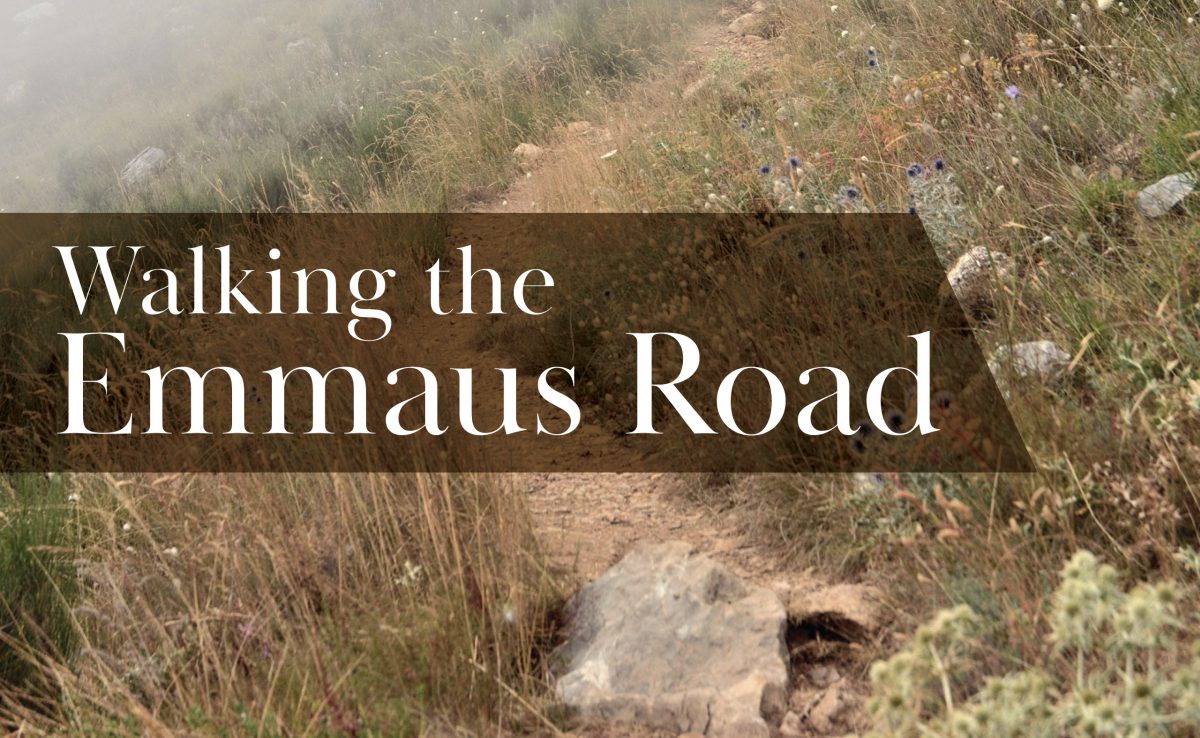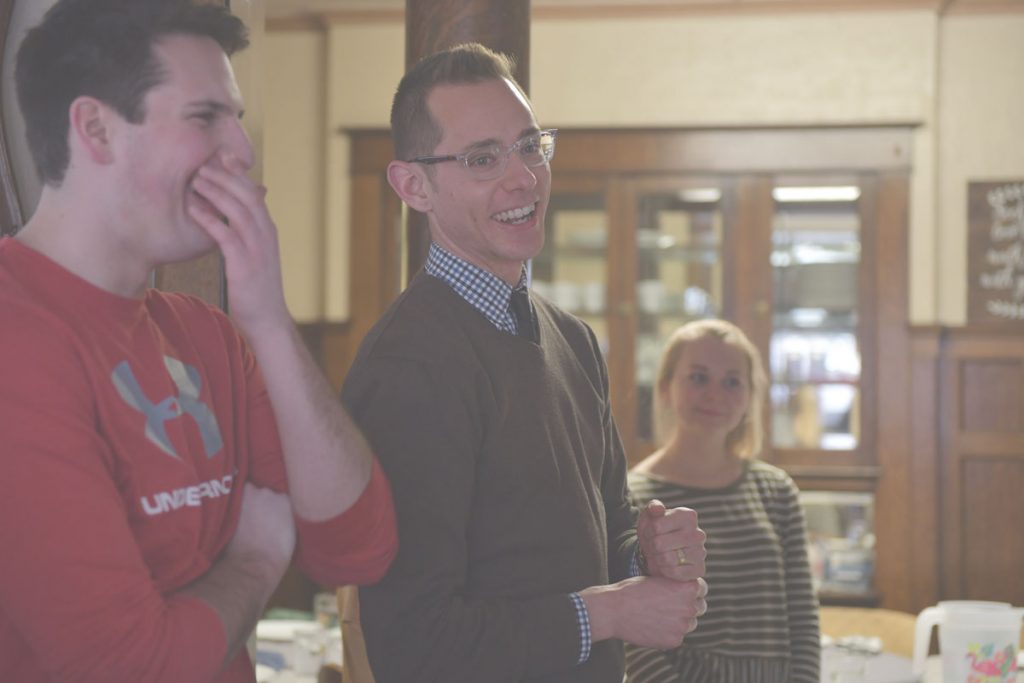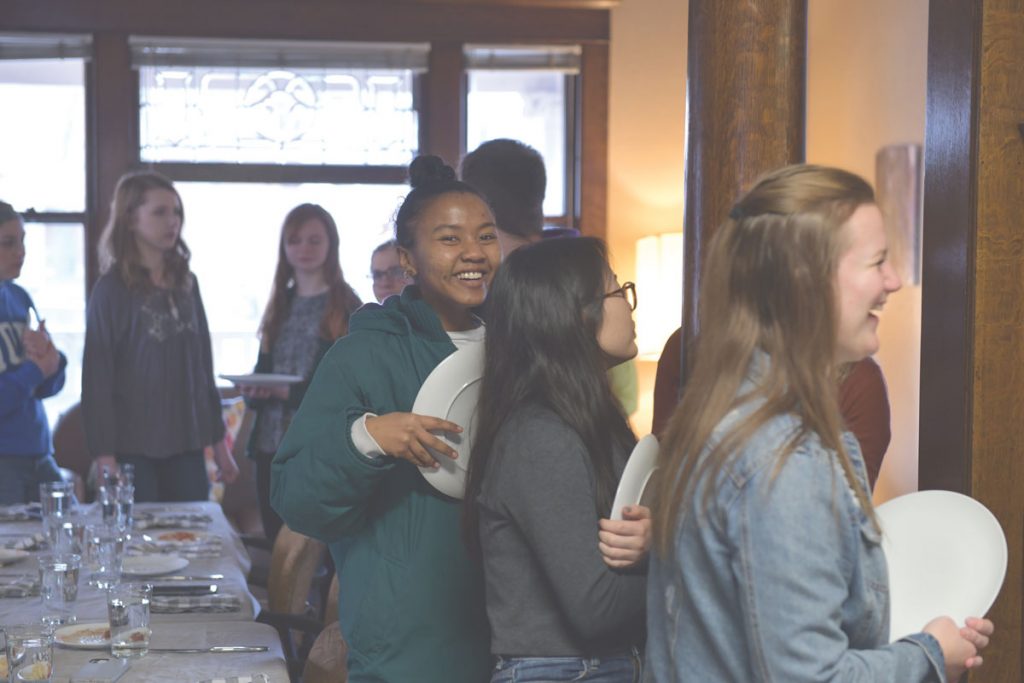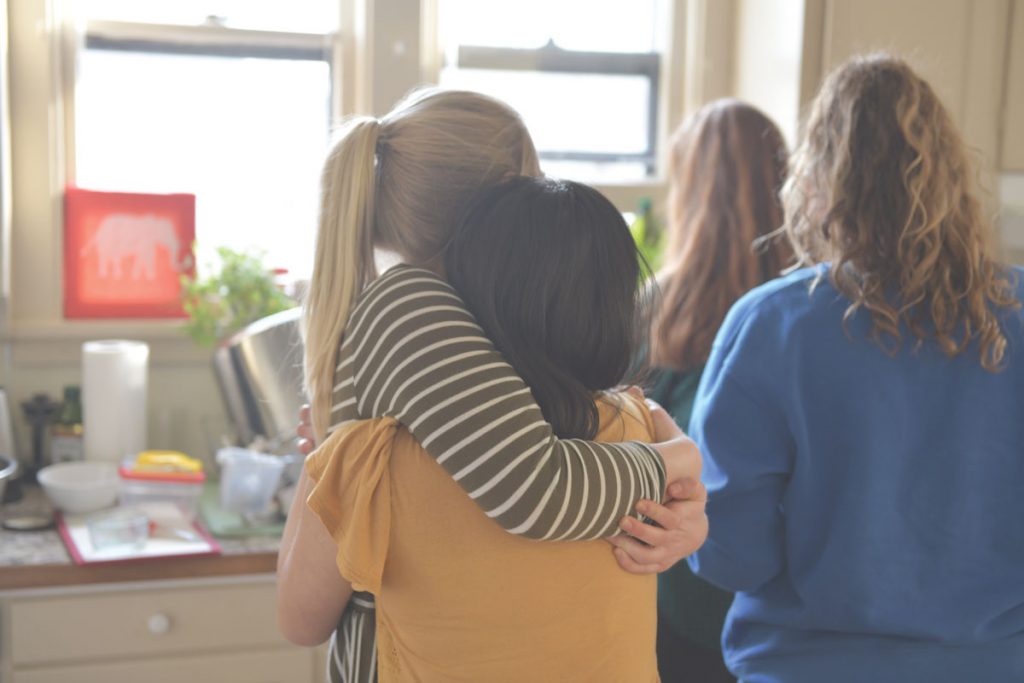Walking the Emmaus Road
The Emmaus Scholars Program “combines practices of intentional Christian community with academic and practical explorations of the intersection of faith and justice,” said Dr. Matt Jantzen, the program’s director. Jantzen, who did his doctoral work in Christian theology, race and politics at Duke University, has been directing the program since fall 2018.
Emmaus is one of three living-learning communities at Hope College (the others are the Phelps Scholars Program and Day1). Now in its seventh cohort, this year’s Emmaus community consists of 22 Hope students. Most of these are Emmaus Scholars, who are enrolled as participants in the one-year program, and a few are Emmaus Fellows: students who return for a second year to serve as RAs and student leaders. They live together in three cottages, with 17 women split between two of the houses and the remainder of the Emmaus cohort, five men, in the other. (As with Hope College in general, Emmaus has more women than men.)
In these three cottages, the “living” aspect of the living-learning program draws the students into deep, intentional community through Christian spiritual practices. For one academic year, they commit to shared prayer three times a week and a common meal every Sunday night. Each week, one of the cottages hosts all 22 students (plus Jantzen and an intern from Western Theological Seminary) for an evening of feasting and fellowship; students take turns prepping, cooking, blessing the meal and cleaning up.
This shared meal provides a direct and purposeful link to the Lucan narrative of the Emmaus Road story: “It’s in the breaking of bread that the disciples finally recognize Jesus,” Jantzen said. “Our hope is that perhaps in small ways, Jesus will make himself known as we share table fellowship and journey through life with strangers — and that we might even come to see more clearly who Jesus is in the faces of those strangers.”
For the “learning” aspect of Emmaus, the students enroll in a special section of Religion 295, the Emmaus Scholars Seminar. (This fulfills their general education requirement for a 200-level religion course.)
“We basically spend a semester thinking about the relationship between faith and justice. What does it look like in a complex, global society to live out one’s faith around really difficult questions of injustice, poverty, race, racism, environmental degradation?” Jantzen said. “It’s a crash course in how to think and act like a Christian in the 21st century United States.”
“Faith and justice cannot be separated from each other. They are one coherent story of what God has been doing in the world since creation and principally through the death and resurrection of Jesus.”
Ashley Hayden, a junior from Lapeer, Michigan, who is majoring in dance and psychology, is in her second year with the Emmaus program, where she serves as a Fellow.
“One of the most incredible things from the living-learning community is that you get to go to class and learn about all these different issues from a religious lens, but the conversations don’t stop when you walk out of the classroom,” Hayden said. “Some of the most formative things for me were being able to come home and just sit around the table and process everything together, then figure out how it actually impacts our lives.”
Here it becomes clear that the two elements of the program — living and learning — can’t be as cleanly delineated as the phrase might imply. The learning overflows into the living, and the living bleeds into the learning.
“If nothing else, Emmaus is a yearlong, intense conversation that starts in a classroom and then winds up around the kitchen table that night and then is back in the classroom two days later,” Jantzen said.
It also winds up on the streets of Holland, Michigan, and in the bustling urban environments of Washington, D.C., as the Emmaus Scholars put into practice what they’re living and learning.
This is part of what Hayden almost apologetically calls “a cheesy thing we say, that Emmaus is a community that teaches you how to care with your head, your hands and your heart.” If the classroom learning is the head, and the practices of Christian formation are the heart, then rolling up one’s sleeves in Hope’s neighborhood and on the spring break trip to Washington, D.C., roughly constitutes the hands.
Locally, Emmaus Scholars work with 3sixty, a neighbor-led nonprofit that works to identify and address community needs in Holland’s East Core neighborhood, just south of campus. Emmaus students have canvassed this neighborhood with surveys to collect and process data about community members and their needs; they’ll use that information to propose action plans that try to implement changes.
On a broader scale, Emmaus students travel each year to Washington, D.C., where they spend a week exploring different models of Christian social engagement and justice work. There, they get to experience a wide range of opportunities through which Christians are working to make a difference in the world, from direct activism via protests to faith-based community organizing to lobbying Congress.
Just as the living and learning elements of Emmaus can’t be cleanly separated, and the head-heart-hand elements of holistic faith can’t be isolated from one another, the distinction between faith and social justice — that is, between what one believes and the ways one joins God’s work in the world — is intentionally blurred.
They aren’t separate things, Jantzen said, but are “one coherent story of what God has been doing in the world since creation and principally through the death and resurrection of Jesus.”
“If you ask me what Christian faith is about, I can’t really answer that question without talking about what God is doing in the world to oppose injustice and heal the brokenness of creation,” he said. “If you ask me what I think about justice, I can’t get very far without talking about who God has revealed God’s self to be in the covenant with Israel and the resurrection of Jesus or Jesus’ ongoing work through the Spirit in the world today.”
“One of the biggest things I’ve learned is that the vertical relationship between us and God cannot be teased apart from the horizontal relationship that we have with everything else at stake in the world,” Hayden said.
To that end, the Emmaus Scholars Program focuses on racial injustice by pairing a theological vision to rigorous engagement with critical social theory and race studies.
“The conversation about race and racism is one that Hope College needs to be having, and is trying to have,” Jantzen said. “Emmaus is a place where that conversation is happening really honestly, with all of its good and bad parts, as much as it is happening anywhere on campus.”
If there’s one question that Emmaus is trying to answer, it’s this: Who is Jesus Christ for us today?
“Emmaus has radically shaped how I understand what being a Christian is and ought to look like,” Hayden said. “It changed the way I think about things that go on in the world, and it changed the way that I know God to be and how I recognize Him in the world. I think my eyes have been radically opened to the ways Jesus shows up in the world today.”




